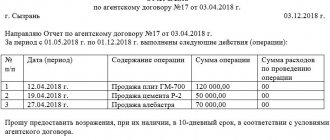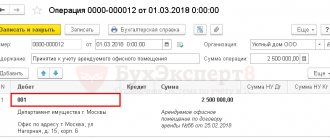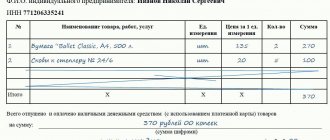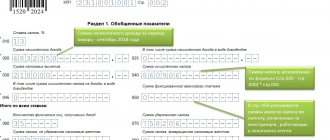What is an agency agreement
An agency agreement is a form of intermediary agreement in which the customer entrusts a task to the contractor. As a rule, this is the sale or purchase of goods, works and services. In an agency agreement, the customer is the principal and the contractor is the agent.
The peculiarity of an agency agreement is that tasks are performed both on behalf of the principal and on behalf of the agent, but always at the expense of the principal. Based on the completion of the contract, the agent receives a reward. The customer can specify in the contract a fixed amount, a percentage of the transaction amount, or promise to transfer the profit received from the sale or savings on the purchase as a reward.
Reasons for failure of agency schemes
Many experienced accountants, hearing about agency tax optimization schemes, frown with displeasure - the method is old and highly risky.
It is enough to enter the corresponding request into Yandex, and there will be dozens of court decisions negative for the taxpayer on the application of the scheme. In these decisions, with varying variations, the same references to the 53rd Resolution of the Plenum of the Supreme Arbitration Court are found. And then a simple question to which entrepreneurs cannot give a clear answer: why do we need a scheme?
On the other hand, many tax consultants continue to popularize this type of optimization, including inventing new terminology for it and calling it direct and reverse agency schemes, which does not change their essence. Entrepreneurs like these schemes (especially if the agent is an individual entrepreneur, with the possibility of cashing out money) and they implement them, often adding to the negative judicial practice.
One of the reasons for the unsuccessful implementation of agency schemes is a lack of understanding of its tax aspect. The Civil Code does contain Chapter 52, dedicated to agency relations, and allows organizations and individual entrepreneurs to apply it with virtually no restrictions (with the exception of contracts for licensed activities, in which both parties must have a license, or in relation to food products on the basis of paragraph 5 of Article 13 of the Federal Law of December 28, 2009 N 381-FZ).
But from the point of view of tax legislation and established judicial practice, it is precisely the question of the validity of the tax benefit that is important, which is always present in agency relationships in the form of a reduction in the tax base or the possibility of applying the simplified tax system when revenue indicators are exceeded, by shifting the tax burden to low-tax entities, which are most often organizations and individual entrepreneurs on a simplified taxation system.
As a result, the budget receives less money, which naturally attracts the attention of not only tax authorities, but also banks, which may see signs of legalization in the scheme and block accounts.
VAT on an agency agreement with the principal
Let's figure out how to work with VAT and invoices when selling and purchasing goods under an agency agreement. The procedure depends on whose name the transaction is executed: the customer or the contractor. There are four possible situations in total.
VAT on the principal when selling goods
If goods are sold on behalf of the customer , then VAT must be charged, invoices issued and registered in the standard manner. Proceed in the same way as when working without intermediaries:
- Charge VAT on the day the agent delivers the goods to the buyer. If there was an advance payment, then VAT is charged twice: on the day of the advance and on the day of transfer.
- Issue an invoice five calendar days from the date of shipment or receipt of advance payment.
- Record the invoice in the sales ledger. At the end of the same quarter, include VAT in your return.
The tax is paid based on the results of the quarter - before the 25th day of the month following the reporting period.
If the product is sold on behalf of an agent , then you will not have to interact with the buyer. The agent himself will issue all the invoices to him, and will give you copies of them or information from them in another convenient form that you agree on. Based on the copies received, charge VAT and re-invoice the agent. There are three steps in total:
- Charge VAT on the day of shipment, and if you receive an advance payment, charge the tax twice - upon receipt of the advance payment and upon shipment.
- Re-invoice the agent within five days. In its lines 2, 2a and 2b, enter your data; in line 1, enter the number that corresponds to your order of invoices. Take the remaining data from the copy received from the agent. Please remember that the date on the reissued document must match the date on the buyer's invoice.
- Register the reissued invoice in the sales ledger in the quarter in which you made the shipment or received the advance. When registering, indicate the buyer’s information in columns 7 and 8, and your agent’s information in columns 9 and 10.
Fix in the agency agreement a condition on the period within which the agent must provide you with information about shipments and advances or invoices issued to buyers. This is necessary so as not to be late in calculating tax and issuing an invoice.
VAT from the principal when purchasing goods
When purchasing items on your behalf, the seller will issue an invoice directly to you. Register it in the purchase ledger in the standard manner and accept the input VAT for deduction.
When purchasing goods on behalf of an agent, he will receive an invoice from the seller in his name and reissue it to you. Register the reissued invoice in the purchase book. Do this in the quarter in which you have met all the conditions for accepting input VAT for deduction, or in the next quarter if you want to transfer the deduction. In columns 9 and 10, indicate the seller’s information, in columns 11 and 12, the agent’s information.
If several invoices are issued or received on the same day, they can be replaced by one consolidated invoice, which summarizes the information from all documents.
When the intermediary's remuneration is not subject to VAT
Based on the provisions of paragraph 2 of Article 156 of the Tax Code of the Russian Federation, intermediary services for the sale of goods (work, services) specified in paragraph 1, subparagraphs 1 and 8 of paragraph 2 and subparagraph 6 of paragraph 3 of Article 149 of the Tax Code of the Russian Federation are not subject to VAT.
Accordingly, the intermediary’s remuneration will not be subject to VAT if intermediary services are provided:
- For the provision of premises for rent on the territory of the Russian Federation to foreign citizens or organizations accredited in the Russian Federation.
- For the sale of the most important and vital medical equipment according to the List approved by the Decree of the Government of the Russian Federation of January 17, 2002. No. 19.
- For the sale of prosthetic and orthopedic products, raw materials for their manufacture and semi-finished products for them according to the List approved by the Decree of the Government of the Russian Federation of December 21, 2000. No. 998.
- For the sale of technical means, including motor vehicles, materials that can be used exclusively for the prevention of disability or rehabilitation of disabled people according to the List approved by the Decree of the Government of the Russian Federation of December 21, 2000. No. 998.
- For the sale of glasses, lenses and frames for glasses (except for sunglasses) according to the List approved by the Decree of the Government of the Russian Federation of March 28, 2001. No. 240.
- For the provision of funeral services, work (services) for the production of tombstones and the design of graves, as well as the sale of funeral accessories according to the List approved by the Decree of the Government of the Russian Federation of July 31, 2001. No. 567.
- For the sale of folk arts and crafts products of recognized artistic merit (with the exception of excisable goods), samples of which are registered in the manner established by the Decree of the Government of the Russian Federation of January 18, 2001. No. 35.
In all other cases, the intermediary's remuneration is subject to VAT.
VAT on an agency agreement with an agent
On the part of the contractor, the procedure for working with VAT and invoices again depends on whose name the transaction is executed: in the name of the agent or in the name of the customer. Let's consider four situations.
VAT at the agent when selling goods
If you are selling goods on behalf of a principal , then you have minimal responsibilities. The principal himself will calculate VAT and issue invoices to buyers. Your responsibility will only be to issue the agency fee.
If you sell goods on your own behalf , you must issue and register an invoice in the name of the buyer in the accounting book. Draw up the document in two copies within 5 days from the date of transfer of goods to the buyer (reception of advance payment). Give one copy to the buyer, the other to the customer under the contract. Based on the received copy, the principal will issue you an invoice with the same indicators. It must be recorded in Part 2 of the invoice journal; nothing needs to be entered in the purchase ledger.
Record the invoice issued to the buyer of the principal's goods in the first part of the invoice journal.
VAT from the agent when purchasing goods
If you are purchasing goods on behalf of a principal , you cannot deduct input VAT since the purchased goods do not become your property. The seller will immediately issue invoices for the goods in the name of the principal, so there will be no need to re-issue anything.
If you buy goods on your own behalf , you cannot deduct input VAT either. But in this case, invoices received from the seller will have to be reissued and recorded in the accounting journal. Proceed in the following order:
- Register the invoices received from the seller in part 2 of the accounting journal for the quarter in which they were compiled.
- Reissue the invoice and transfer it to the principal. In line 1, indicate the serial number of the account according to your numbering, in lines 2, 2a and 2b the seller’s details, in line 5 the payment details, and in lines 6, 6a and 6b the principal’s details. Take all other indicators from the seller's invoice.
- Provide the principal with certified copies of invoices received from the seller.
- Record the invoice reissued to the principal in Part 1 of the accounting journal.
The agent can purchase goods from the seller not only for the principal, but also for himself or other customers. In this case, in the copy of the invoice, the quantity of goods purchased will not match the one that the agent issues to the customer. This is normal, since other people's goods are excluded from the document.
VAT on intermediary income
The intermediary's remuneration is subject to VAT at a rate of 18% in accordance with clause 3 of Article 164 of the Tax Code of the Russian Federation.
The specifics of determining the tax base by taxpayers receiving income on the basis of agency agreements, commission agreements or agency agreements are regulated by the provisions of Article 156 of the Tax Code of the Russian Federation.
In accordance with clause 1 of Article 156 of the Tax Code of the Russian Federation, taxpayers, when carrying out business activities in the interests of another person, are based on:
- agency agreements,
- commission agreements,
- agency agreements,
determine the tax base as the amount of income received by them in the form of remuneration (any other income*) in the execution of any of these contracts.
*In addition to remuneration, an intermediary acting on his own behalf may receive income in the form of additional benefits . According to the provisions of Article 992 of the Civil Code of the Russian Federation, in the case where the commission agent made a transaction on terms more favorable than those specified by the principal, the additional benefit is divided equally between the principal and the commission agent, unless otherwise provided by agreement of the parties.
Based on Article 1011 of the Civil Code of the Russian Federation, the provisions of Article 992 of the Civil Code of the Russian Federation may also apply to agents.
Amounts of additional benefits increase the VAT tax base. According to the explanations of the Ministry of Finance, given back in 2011 in the Letter dated May 12, 2011. No. 03-07-11/122, amounts of additional benefits are taxed at a rate of 18%:
“According to paragraph 1 of Art. 146 of the Tax Code of the Russian Federation (hereinafter referred to as the Code), transactions for the sale of goods (work, services) on the territory of the Russian Federation are subject to taxation with value added tax.
In accordance with paragraph 1 of Art. 156 of the Code, taxpayers, when carrying out business activities in the interests of another person on the basis of commission agreements, determine the tax base for value added tax as the amount of income they received in the form of remuneration (any other income).
Taking into account the above, the income of the commission agent, received in the form of additional benefits from the sale of goods at a price exceeding the price set by the principal, is included by the commission agent in the tax base for value added tax. At the same time, on the basis of clause 3 of Art. 164 of the Code, in relation to additional benefits received by the commission agent, a tax rate of 18 percent is applied ."
Amounts received by the intermediary from the customer to compensate for expenses incurred by the intermediary in carrying out activities in the interests of the customer are not included in the tax base and are not subject to VAT.
However, tax authorities do not always agree with this and taxpayers are forced to go to court to defend their interests. There is judicial practice on this issue that is positive for taxpayers.
Thus, the FAS Moscow District in its Resolution dated November 19, 2007. No. KA-A40/11709-07 in case No. A40-9290/07-108-11 supported the taxpayer in a dispute with the tax inspectorate, referring to the provisions of Article 156 of the Tax Code of the Russian Federation.








